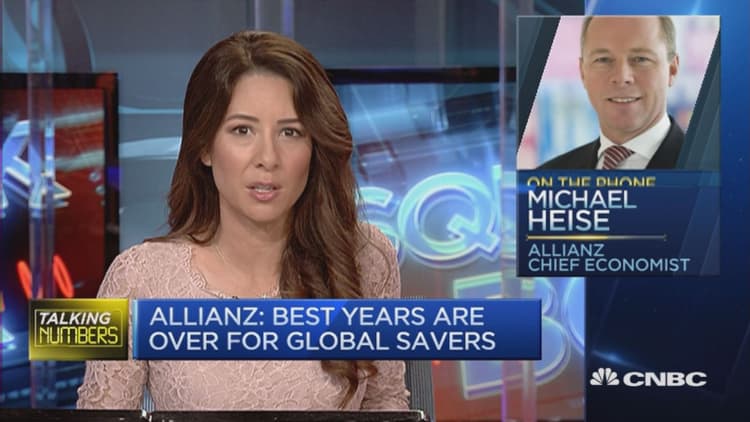
Overcautious saving has cost German households 200 billion euros ($223 billion) in lost investment income over the past four years, German insurance giant Allianz said.
Allianz's global wealth report, published on Wednesday, revealed that Germans lost out by keeping their savings in banks, rather than investing in shares or funds.
Germans have long enjoyed a reputation of one of the most financially prudent people in Europe; diligently saving and avoiding hefty loans such as mortgages. This antipathy to risk stems from the economic crisis of the 1920s when hyperinflation wiped out savings and bankrupted millions.
The report said that since 2012, Germans had placed roughly 40 percent of their financial assets in banks — at a loss, because these deposits yielded a mean return of -0.4 percent.
However, had these savers went against their stereotypes and reduced the share of bank deposits to 30 percent and invested the money equally into listed shares and mutual funds, the rate of return would have been almost one percentage point higher, according to Allianz. This would have allowed households to reap an addition investment income of 200 billion euros.
"It is evident that times of extreme monetary policy with negative interest rates require adjustments in savings behavior … New savings patterns and asset solutions are necessary — a task the financial industry and politics should tackle hand in hand," Allianz Chief Economist Michael Heise said in the report.
Allianz found that German household received a real return on assets of 2.3 percent over the last four years. This compared to 3.6 percent for French households and over 4 percent for both Italy and Spain.
When central banks adopt ultra-low or negative-interest rate policies, this puts pressure on banks that is then typically passed on to customers in the form of low return on deposits.
"Savers face a real dilemma," Heise said.
The flipside of their caution is that German households enjoy the second lowest debt levels in the euro zone, after Austria, as measures by the difference between financial assets and liabilities. German households' liabilities grew by 2.2 percent, while their financial assets grew by over twice that, at 4.6 percent.
Allianz said that in general, Western European countries were taking a very conservative approach to borrowing.
Only very few households seem to succumb to the temptation of ultra-low loan rates and embark on a credit-fueled spending spree," Heise said.
"The majority of households act in an economically very sensible manner — defying the intentions of central bankers who are trying to pump up demand via aggressive rate cuts. Following the excesses of the financial crisis, however, households view trimming debt as more important," he added.
For savers across the world, "the best years are over," Allianz said. Global financial assets climbed by 4.9 percent in 2015, compared with average annual growth of 9 percent in the preceding three years.


